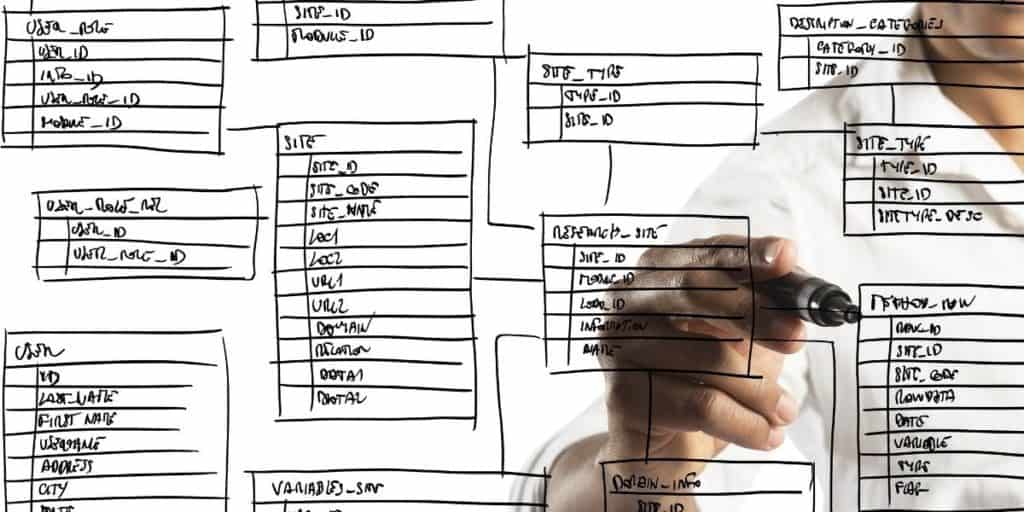We live in an age of data, and data analysts are high in demand right now. But this trend is slowly changing, with more and more software engineers choosing to master the domain of data science. But can a data analyst become a software engineer too?
A data analyst can become a software engineer. However, you will need to learn and master the use of data structures and algorithms before you can expect to merge your expertise from the two domains realistically. If you don’t have any background in programming, it could be difficult.
In this article, we will explore this subject in detail. We will start by looking at how a data analyst can go about becoming a software engineer. We will also compare these two domains and their future trends.
Important Sidenote: We interviewed numerous data science professionals (data scientists, hiring managers, recruiters – you name it) and identified 6 proven steps to follow for becoming a data scientist. Read my article: ‘6 Proven Steps To Becoming a Data Scientist [Complete Guide] for in-depth findings and recommendations! – This is perhaps the most comprehensive article on the subject you will find on the internet!
Table of Contents
How Can a Data Analyst Become a Software Engineer?
A common misconception that many people have about software engineering is that it is all about learning a particular programming language or framework. While this is true, the foundation of a good software engineer lies in the intuitive mastery of data structures and algorithms.

Once you have an intuitive grasp of data structures and algorithms, you can experiment with building a distributed system from scratch.
To do this, you can start by learning a few back-end web frameworks. Learning multiple frameworks will not only give you an edge in the job market but will also help you better master the programming mindset. Most professional software engineers do indeed have a good working knowledge of at least a couple of frameworks.
Django, Rails, Laravel, Express, and Spring Boot are some of the most popular web frameworks right now. Each of these frameworks are based on different programming languages, so it also helps to get an in-depth knowledge of the language. Django is based on Python, Rails is based on Ruby, Laravel is based on PHP, Express is based on Node.js, and Spring Boot is based on Java.
Once you’ve mastered a few back-end frameworks, you should now learn a front-end framework or two. This isn’t a crucial step in becoming a software engineer, but mastering both back-end and front-end will make you a full stack developer. This can give you a clear edge. You can learn React, as it is one of the most popular front-end platforms right now.
Learning to work with databases is the next crucial step to becoming a well-equipped software engineer. A database is where all the data that software uses and works with is stored. As a data analyst, you must already have some working knowledge of databases and SQL. But since you’ve now learned to work with frameworks, most of them interact with databases using their ORM.
Are You a Software Engineer Yet?
The skills discussed above should be sufficient to get your career as a software engineer going. But the domain is not limited to these. Since most modern applications rely on cloud storage, you may want to focus on that. Learning to work with cloud infrastructures like Amazon’s AWS or Google’s GCP can give you a real edge.
If you can reach this mastery level as a software engineer, given your background as a data analyst, you can have a real edge in the future job market.
It is a fact that mastering data science is relatively easier than mastering software engineering. So, if you’re a data analyst preparing for an uncertain future, you need a good head start over software engineers looking to become data analysts. Better start now than wait till later.
Data Science vs. Software Engineering
Let us now look at the key differences between the fields of data science and software engineering.
Data science is a domain that combines Computer Science, Mathematics, and Statistics to study data, both structured and unstructured, to derive some useful information from it.
We live in an age of massive data collection. Pretty much everything we interact with, be it an online shopping portal, the supermarkets we visit, a web service, a dining service, or the myriad of IoT devices in our homes, are collecting data. Data scientists study these data to better optimize the services on our behalf.
Software engineering is a much older and established domain of the tech industry. It involves designing and developing applications and software that provide a certain service. These include the websites we visit, and the software banks use to manage our accounts or the video games we play. Software engineers are even responsible for developing the tools that data scientists use to study and to analyze data.
Currently, data scientists are in higher demand compared to software engineers and are also paid higher. But the recent trend shows that more and more software engineers are getting gravitated towards data science and transitioning careers. Consequently, the last few years have seen a surge in the number of high caliber, trained software engineers taking up data science roles, resulting in the opening of a ton of software opportunities in the job market. The fact that transitioning from a software engineering role to a data scientist role is much easier than the other way round is also supportive of this trend.
Additionally, there’s also a popular movement called “democratizing machine learning” that’s happening right now. This movement aims to simplify the process of machine learning so that software engineers can build various models themselves.
Which Career Is More Rewarding: Data Analyst vs. Software Engineer?
To summarize what we described in the previous section, software engineers today create products and services that generate data. In contrast, data analysts study those data to derive valuable information from them.

The conversion of raw data into valuable insights that businesses can use to optimize their service and increase their profits makes data science an incredibly valuable field and data analysts a valuable part of the business ecosystem.
Currently, data science is the more rewarding of the two domains. While software engineers are responsible for developing the main products and services for a business, they often lack the domain expertise to optimize and manage the software after they have written it. However, data scientists must know about multiple domains such as Computer Science, Statistics, Machine Learning, and Business.
You need to understand that we live in a world driven by money. A factor that can increase your profit will be deemed much more valuable than the provided services. This is how pretty much every business operates.
But like we’ve mentioned in the previous section, there is a growing trend where more and more software engineers are making a career transition to take data science roles. Hence, the availability of software roles in the market is expanding, presenting an opportunity for other professionals to take up software engineering roles. Hence, while the 2010s were all about software engineers wanting to be data analysts, the 2020s can potentially be about data analysts wanting to be software engineers.
A well trained and experienced Data Analyst will have an important advantage in terms of domain expertise. If they can learn to develop software, they could cut pure software engineers out of the loop.
Conversely, a software engineer who goes into mastering data science could cut pure data analysts out of the loop. However, it is easier for software engineers to learn data science than the other way round.
This is because, unlike a programmer’s mindset, which can be a challenging paradigm to adopt, data science is relatively easier to study and master.
Either way, the emergence of high demand software engineer-data analyst hybrids is imminent in the following decade.
Author’s Recommendations: Top Data Science Resources To Consider
Before concluding this article, I wanted to share few top data science resources that I have personally vetted for you. I am confident that you can greatly benefit in your data science journey by considering one or more of these resources.
- DataCamp: If you are a beginner focused towards building the foundational skills in data science, there is no better platform than DataCamp. Under one membership umbrella, DataCamp gives you access to 335+ data science courses. There is absolutely no other platform that comes anywhere close to this. Hence, if building foundational data science skills is your goal: Click Here to Sign Up For DataCamp Today!
- IBM Data Science Professional Certificate: If you are looking for a data science credential that has strong industry recognition but does not involve too heavy of an effort: Click Here To Enroll Into The IBM Data Science Professional Certificate Program Today! (To learn more: Check out my full review of this certificate program here)
- MITx MicroMasters Program in Data Science: If you are at a more advanced stage in your data science journey and looking to take your skills to the next level, there is no Non-Degree program better than MIT MicroMasters. Click Here To Enroll Into The MIT MicroMasters Program Today! (To learn more: Check out my full review of the MIT MicroMasters program here)
- Roadmap To Becoming a Data Scientist: If you have decided to become a data science professional but not fully sure how to get started: read my article – 6 Proven Ways To Becoming a Data Scientist. In this article, I share my findings from interviewing 100+ data science professionals at top companies (including – Google, Meta, Amazon, etc.) and give you a full roadmap to becoming a data scientist.
Conclusion
A data analyst can become a software engineer, but it can be a challenging task. This is especially true of someone with little to no programming background. An intuitive knowledge of data structures and algorithms and knowledge of programming frameworks is a must.
In the coming decade, we will see the emergence of a lot of people with mixed software engineering and data science knowledge. These generalists will thrive better than anyone purely focused on one of the two domains.
BEFORE YOU GO: Don’t forget to check out my latest article – 6 Proven Steps To Becoming a Data Scientist [Complete Guide]. We interviewed numerous data science professionals (data scientists, hiring managers, recruiters – you name it) and created this comprehensive guide to help you land that perfect data science job.
Affiliate Disclosure: We participate in several affiliate programs and may be compensated if you make a purchase using our referral link, at no additional cost to you. You can, however, trust the integrity of our recommendation. Affiliate programs exist even for products that we are not recommending. We only choose to recommend you the products that we actually believe in.
Recent Posts
Data science has been a buzzword in recent years, and with the rapid advancements in artificial intelligence (AI) technologies, many wonder if data science as a field will be replaced by AI. As you...
In the world of technology, there's always something new and exciting grabbing our attention. Data science and analytics, in particular, have exploded onto the scene, with many professionals flocking...
